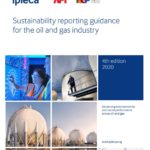Ten major banks from seven countries on Wednesday agreed to a series of guidelines known as the "Equator Principles" on social and environmental issues in loans to developing countries, the World Bank announced.
The banks will apply the principles globally and to financings in all industry sectors, including mining, oil and gas, and forestry, according to a World Bank statement.
"In taking this step today, the adopting banks are doing something that financial institutions rarely do. They are stepping forward to take a leadership role on global environmental and social issues," said Peter Woicke, the IFC’s executive vice president. "This is unprecedented … even if you use an extremely conservative estimate, this will change the rules of the road for over 100 billion dollars in global investment over the next 10 years."
The banks adopting the principles are ABN AMRO Bank and Rabobank of the Netherlands; Barclays PLC and Royal Bank of Scotland of Britain; US-based Citigroup, Inc.; French-based Credit Lyonnais; Credit Suisse Group of Switzerland; HVB Group and WestLB AG of Germany; and Westpac Banking Corporation of Australia.
Together, these banks underwrote some 14.5 billion dollars of project loans in 2002, or 30 percent of those for developing countries, the World Bank said.
Six more banks are expected to adhere to the principles in the coming weeks, according to World Bank officials.
The Equator Principles are based on policies and guidelines of the World Bank and its arm for lending to poor countries, the International Finance Corporation (IFC). The guidelines were drafted in response to criticism that big projects were being financed in developing countries with little regard to the impact on local inhabitants.
In the past, for example, ABN Amro for financing a controversial mining project in Indonesia and Citigroup for its role in the disputed Three Gorges Dam in China.
The Equator Principles include guidelines on sustainable development and use of renewable natural resources; protection of human health, cultural properties, and biodiversity; avoiding use of dangerous substances; accepting standards for occupational health and safety; socioeconomic impacts; involuntary resettlement; and pollution effects, among other things.
"At Barclays we take our social and environmental responsibilities seriously," said Chris Lendrum, head of Corporate Social Responsibility at the British bank.
"We have long been aware of the sensitivities surrounding project financing and only lend when we are satisfied that environmental impacts are being managed in accordance with stringent environmental criteria. We have been pleased to work alongside other leading banks to adopt the Equator Principles, which gives us the opportunity to further formalize our commitment."
Charles Prince, chairman and chief executive officer of Citigroup’s Global Corporate and Investment bank, said, "We are extremely proud to be part of this voluntary, private-sector initiative and we are confident that we will see more and more banks active in project finance adopt these principles in the coming months."
"Observing the highest standards of corporate citizenship and behavior not only benefits our business, but is the right thing to do" said Johnny Cameron, chief executive for corporate banking and financial markets at The Royal Bank of Scotland. "I am delighted that RBS is supporting this important initiative."



